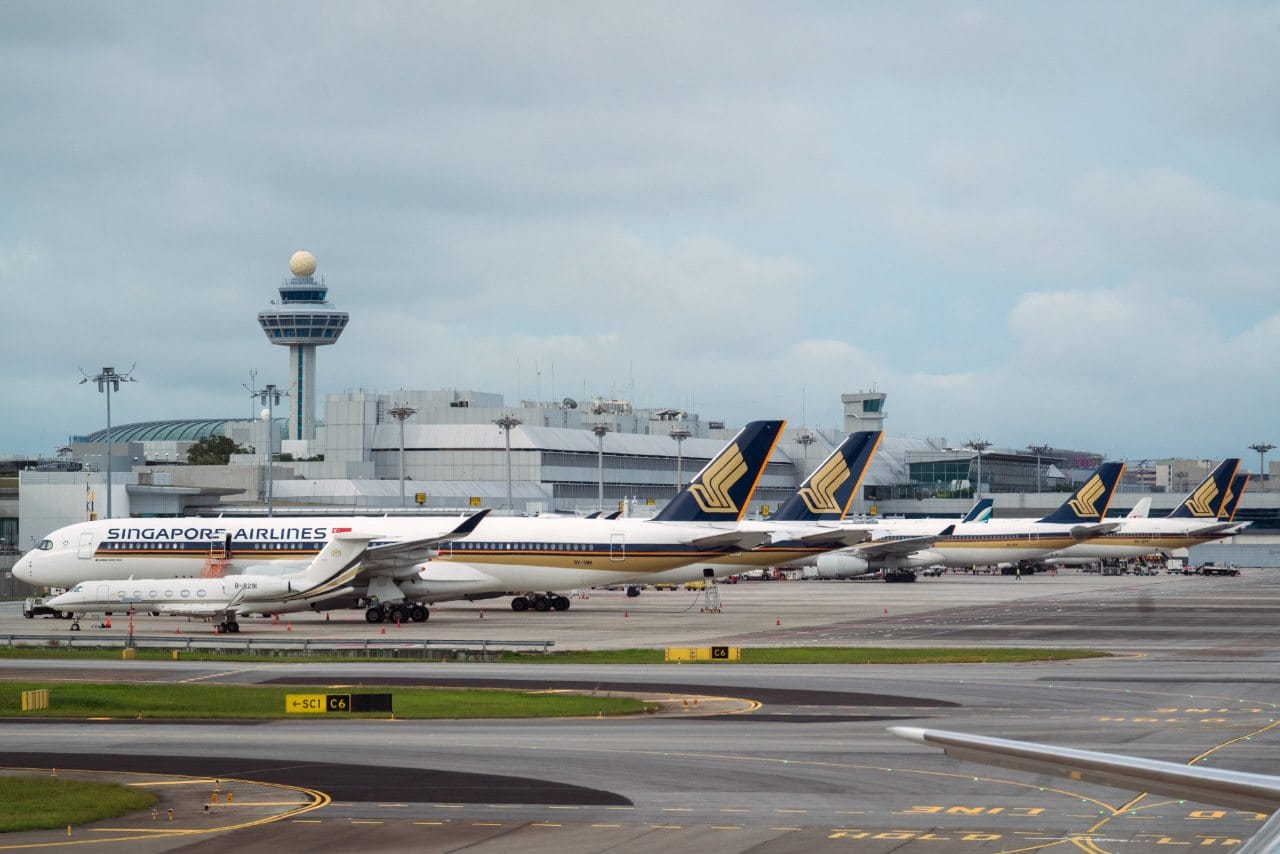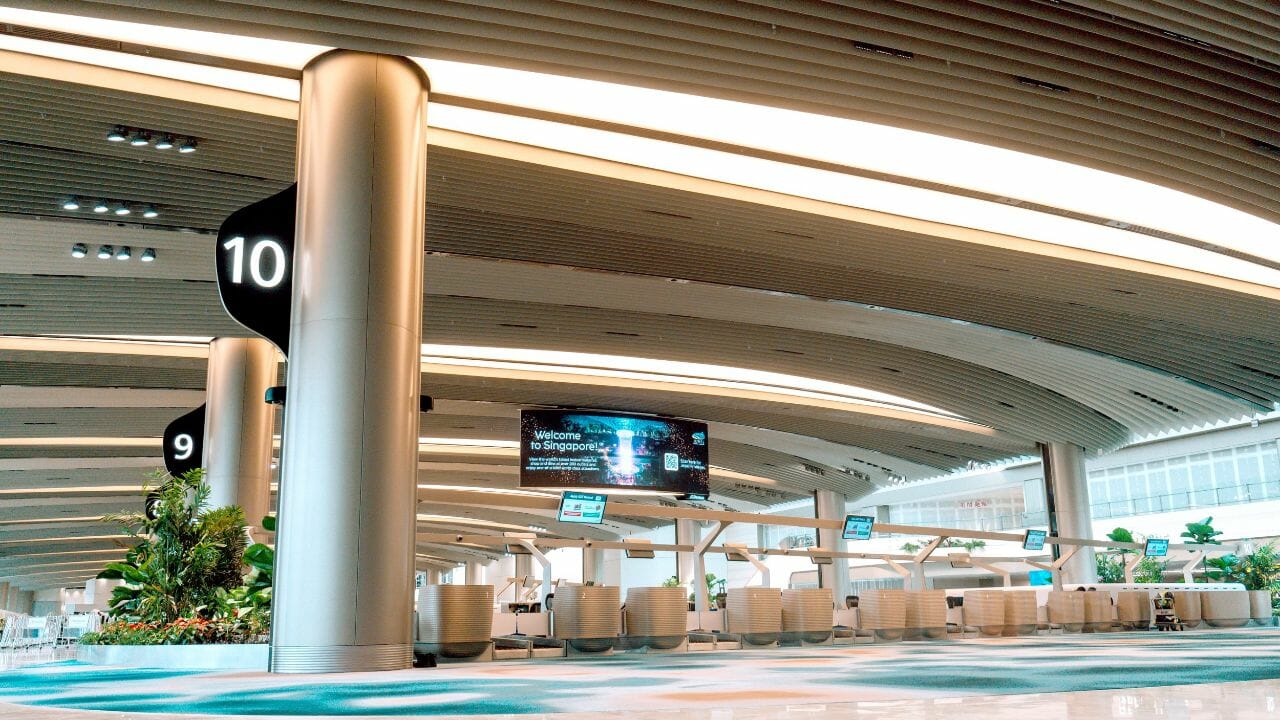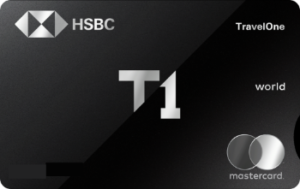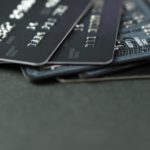Air tickets from Singapore will become more expensive from 2026, thanks to a new sustainable aviation fuel (SAF) levy aimed at decarbonising airline operations.
While the exact amounts have yet to be confirmed, the SAF levy will depend on distance travelled and class of travel, with First and Business Class passengers paying higher rates. Singapore will be the first country in the world to impose such a levy (yay), which will further increase by 2030 in line with higher targets for SAF utilisation.
tl;dr: Expect to pay more for airfares, particularly if you’re redeeming miles.
Sustainable Aviation Fuel levy to start from 2026

From 2026, Singapore will aim for 1% of all jet fuel used at Changi and Seletar Airport to be SAF. This target will subsequently raised to between 3-5% by 2030, depending on “global developments and the wider availability and adoption” of SAF.
| ❓ What is Sustainable Aviation Fuel? |
|
SAF is a liquid fuel currently used in commercial aviation which reduces CO2 emissions by up to 80%. It can be produced from a number of sources (feedstock) including waste oil and fats, green and municipal waste and non-food crops. It can also be produced synthetically via a process that captures carbon directly from the air. It is ‘sustainable’ because the raw feedstock does not compete with food crops or water supplies, or is responsible for forest degradation. Whereas fossil fuels add to the overall level of CO2 by emitting carbon that had been previously locked away, SAF recycles the CO2 which has been absorbed by the biomass used in the feedstock during the course of its life. Seven biofuel production pathways are certified to produce SAF, which perform at operationally equivalent levels to Jet A1 fuel. By design, these SAFs are drop-in solutions, which can be directly blended into existing fuel infrastructure at airports and are fully compatible with modern aircraft. |
SAF is 3-5x more expensive than conventional jet fuel, so a levy will be introduced that increases ticket prices across the board. The exact amounts have yet to be confirmed, but some initial figures have been provided for Economy Class travel out of Singapore:
- to Bangkok: S$3
- to Tokyo: S$6
- to London: S$16
The fee will be higher for passengers in premium classes, i.e. any cabin above Economy. While figures for premium cabins have not been shared, assuming seat density is used as the determinant, then my guess is that a Business and First Class passenger could expect to pay 3x and 6x the rates of Economy respectively.
It is also not known at this point whether the levy will apply to transit passengers, with the CAAS saying that more details will be announced in 2025.
Despite the volatility of prices, the levy will be set at a fixed quantum based on the volume of SAF needed to achieve the target, and the projected price of fuel that year. Amounts collected via the levy will be used to purchase SAF, based on the actual price of fuel at the time of purchase.
Mr Chee said: “Whether we are able to meet, or exceed, our SAF (sustainable aviation fuel) target will be based on how much SAF can be purchased with the SAF levy at the prevailing SAF price.”
He added: “If the supply increases and prices come down, which I hope so, we could go beyond our set target.
“Conversely, if sustainable aviation fuel prices shoot up and exceed projected levels, we would purchase less than our set target. But in both scenarios, the cost impact on travellers will be the same because the SAF levy remains unchanged.”
-Straits Times
While there will certainly be an impact on the prices of commercial tickets, the incidence of the levy will end up being split between the passenger and airline, depending on the extent to which the latter believes the former will swallow it (airlines may tweak their base fares to keep the overall cost of commercial tickets competitive, thereby absorbing some of the fees).
When it comes to award tickets, however, the full burden of the levy will fall on the passenger, just like any other tax or surcharge.
Other fee hikes coming in 2024

Unfortunately, the SAF levy is not the only fee hike on the horizon.
From 1 April 2024, Changi Airport will be increasing its Passenger Service & Security Fee (PSSF) from the current S$43.40 to S$46.40. This is the last of a three-stage fee hike that commenced on 1 November 2022, before which the PSSF was S$35.40.
| 🇸🇬 For Flights Originating From Changi |
||
| Current | From 1 Apr 24 | |
| Passengers Service & Security Fee | S$43.40 | S$46.40 |
| Aviation Levy | S$8 | S$8 |
| Airport Development Levy | S$10.80 | S$10.80 |
| Total | S$62.20 | S$65.20 |
Unlike the SAF levy, all these fees are cabin-agnostic; you pay the same regardless of class of travel.
| ❓ Why am I being charged more? |
|
The above fees are collected by Changi Airport from departing passengers. Some airports charge fees to arriving passengers as well. For example, a one-way Business Class redemption from SIN-SFO has S$86.30 of fees. This is broken down into:
The fees in bold are collected by the USA authorities from arriving passengers. Other countries which impose fees on arriving passengers include Australia, Myanmar, New Zealand, Russia, Thailand, and UAE If you’re reviewing the charges on your ticket and want to know which country is responsible for what, you can look up the codes on this page. |
Flying out of Singapore is already notably more expensive than other airports in the region, a gap that will only further increase come 2026.
| Departing from | Airport & Govt Taxes |
| 🇲🇾 Kuala Lumpur | MYR 44 (~S$12) |
| 🇹🇼 Taipei | TWD 500 (~S$21) |
| 🇮🇩 Jakarta | IDR 266,400 (~S$23) |
| 🇹🇭 Bangkok | THB 750 (~S$28) |
| 🇭🇰 Hong Kong | HKD 265- 335 (~S$46-58) |
That said, fees are notably cheaper for transit passengers through Changi, who pay just S$9.
Conclusion
Singapore will introduce an SAF levy from 2026, which increases the cost of air tickets depending on distance flown and cabin of travel.
The exact amounts will only be revealed in 2025, but initial estimates for Economy travel cite ranges from S$3-16, with higher levies for Business and First Class.
Because of the way air ticket prices are displayed in Singapore, the burden will end up being shared between passengers and airlines where commercial tickets are concerned. However, those flying on redemption tickets should expect to bear the full brunt of the levy, just like any other fee.
What do you make of the SAF levy?









why is the govt making things expensive and lives even harder for the people?????
Some might say it’s the cost of progress. In the defense of the govt, they do provide a LOT of subsidies to its citizens. And there are other options, one could take flights from Malaysia instead. Whether that’s worth the additional time/cost is another thing.
How is this making lives harder for people?
1) I would say air travel is optional and the extra charge pales in comparison to what most people will spend on a vacation
2) do you advocate that rich people should pay less tax? What you are alluding to is the same. SAF is for combating climate change and is more sustainable. Given that SG is a wealthy nation by most yardsticks, how do you expect our less wealthy SEA neighbors to chip in if we are not even leading by example?
the amount is secondary… why should we be the pioneer to levy additional charges when the rest of the world hasn’t? we must be the first or so eager to implement such things? for PR/bragging rights? when it raises costs, why for you want to lead by example? they will just look at you and chuckle
I’m not even touching on whether this effort will actually make any difference in the grand scheme of things..
I would say yes, PR/bragging rights are important for a small dot of island with very limited natural resources. SG can’t afford to backslide like bigger countries. And a couple extra bucks on airfare won’t make a material difference in the grand scheme of things at an individual level.
Clearly people don’t bat an eye spending $6 on boba tea as it is a totally reasonable and essential expense, but $6 towards a push for greener outcomes (good intentions anyway, outcomes TBD) .. Outrage! Fuck sustainability man, Gahmen is making our life so hard! Singaporean’s yearly exodus to Tokyo for Michelin-starred omakase is unaffordable now.
I really hoped this episode will U turn just like the EZlink card saga.
Typical frog-in-the-boiling-pot argument. “What is $6?” must surely be music to Changi Airport’s ears. “What is $6” if we increase the levy by that amount every 3 months? Suggesting that air travel is a form of luxury and a person who flies from Singapore is automatically rich are also laughable. Try telling that to the hundreds of thousands of migrant workers whose only way to visit their family is to fly and to our “less wealthy SEA neighbours” if they choose to visit Singapore by air. Let me also ask you if you have ever voluntarily offset your flights’ carbon… Read more »
Hmmm…suggest you pretend to be a poor migrant worker and comment here again.
I’m a retiree who has no income and has to rely on my savings for the rest of my life. Am I now qualified to comment? Someone’s just being salty because I made a valid point. And don’t forget, the levy is $6 economy class for 1% SAF blended in with normal fuel for shorthaul flights. Does this mean the levy will be $600 the day the government mandates 100% SAF? How much then would the levy be for long haul first and business class? Would the frogs in the slow-boiling pot still be croaking the green benefits of such… Read more »
It would make a mockery of the system of they didn’t charge transit passengers the levy. Other than immigration and baggage check-in/claim facilities, these passengers already enjoy all the comforts of Changi, yet they pay peanuts in airport taxes and fees compared to departing passengers. If the price difference becomes too great, there’s always the option of bussing to KL and flying from there, which I already do, from time to time. And how is CAAS going to enforce the usage of SAF in foreign carriers’ short haul flights? They typically do not refuel in Singapore. I’m guessing they’ll still… Read more »
what??? you’d rather pay to bus to KL and fly from there in order to avoid the $3-$16 extra charges? if this is not the definition of penny wish pound foolish then I don’t know what is.
You are working on the very simplistic assumption that airfares ex KUL and SIN are similar. I appreciate if you do a one-way random search between these 2 airports and your choice of destination before sounding off. There have been times I’ve saved more than $100 just by flying from KUL and returning back directly to SIN. That extra money goes towards the bus fare and an extra 1 or 2 nights in KL. Case in point, in a last minute booking last Dec, it cost me about $600 to bus to KL and take an AirAsia flight to Tokyo… Read more »
I think it is each individual decision. Transit airport tax is SGD 9 in Changi and KUL internationally is MYR 73. Exiting direct from Singapore would SGD 86. Coach ticket to KL will be around 50 to 70 dollars round trip. Presently, just based on taxes, it is about equal. However, SIN airfare from generally 2/3 to 3/4 that of SQ fare from SIN. In the end, you need to work out the sum of time value of money versus savings. Some can argue that it a price of a bubble tea while others can argue that this is one… Read more »
Let them charge whatever they want. At the end-of-the-day people will vote with their feet if Changi makes itself uncompeditive. Tourists can choose to go elsewhere. Transit passengers have options including KUL and BKK. And maybe even HKG. I guess those that have no choice are those living in Singapore. Most others have options.
Most others do not pay the same levy as well (they paid $9). Quite often the case in Asia that countries deprive of their citizens/residents to appease/attract foreigners/visitors
I am not clear if this affects transit passengers with a quick stopover in Singapore to connect to another flight or the same flight but assume it does. My main concern is that are making Singapore less competitive. I spoken to a number of people overseas who travels. They said Singapore is really expensive. They either do not come or reduce their expenses when here. As for myself, I could travel less for example take a coach or MVP to Malaysia instead of flying, moderate the amount of travel or take the flight from KUL instead. To each their own… Read more »
Maybe too many Greta Thunberg jokes in the blog? Justice works in mysterious ways…
That being said, because of emissions, the true economic cost of flights (and cars) is not paid by the people who fly (or drive). I’m all in favour of adjusting that balance. Exempting transit passengers feels a bit weird thou
Based on a 100MT fuel burnt on a 777-300ER between SIN and LHR, 1% SAF will mean around 1 MT of SAF assuming it has the same energy value in MJ per kg as jetfuel. LHR flights are typically full but assuming the additional SAF fees based on SGD 16 per pax (and more in JCL and FCL) collected is around SGD 5200 for the flight or USD 3,900. The jet fuel cost is below USD 700 per MT. That meant the breakeven point is USD 3900 + USD 700 = USD 4600 per MT. That meant the SAF will… Read more »
The cited cost increases are a tiny fraction of the air fare price increases that SQ imposed post-COVID. For me, an air fare SYD-LHR is 50% more than pre-pandemic. So paying $0 more in surcharges is a drop in the ocean.